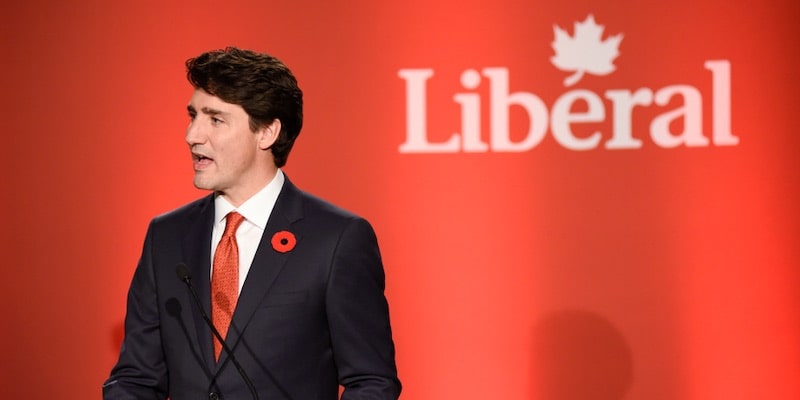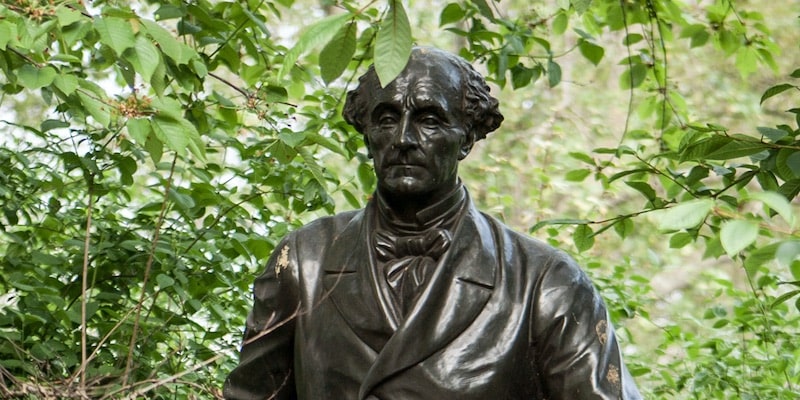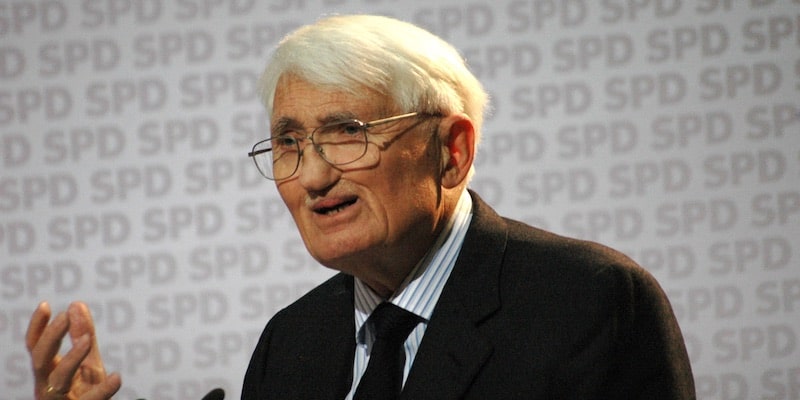We explain what social liberalism is and what its political, economic and social characteristics are. Also, how was its origin.

What is social liberalism?
Social liberalism or socioliberalism It is a political current affiliated with the ideas of classical liberalism, but with a notorious progressive approach which incorporates the ideas of social justice and liberal democracy in a reformist approach. This current is known as modern liberalism (modern liberalism) in the United States and Canada, and as new liberalism (new liberalism) in Europe and the United Kingdom.
Socioliberalism can be understood as a moderate current of both liberalism and socialism, that is, a centrist, intermediate position, which advocates the gradual reform of society for the human and material development of the population. Thus, it understands the State as a necessary entity to sustain a regulatory framework that guarantees equal opportunities and freedom of citizens, but does not replace them in decision-making of any kind.
Therefore, socioliberalism is critical of the currents of socialism and communism, which it considers authoritarian and paternalistic, as well as the currents of classical liberalism, which it understands as a path towards monopolies and the concentration of wealth in few hands
At the center of socioliberal thought is the work of the English philosopher, politician and economist John Stuart Mill (1806-1873), considered one of the most illustrious thinkers of British liberalism. Currents of socioliberalism are considered to be French solidarism, Spanish krauso-institutionalism, as well as current political parties such as the British Liberal Democratic Party, the Spanish Ciudadanos and Unión Progreso y Democracia, the Radicals in Italy, the Center Parties of Finland, Sweden and Estonia, and the Democratic Party in the United States, to name a few examples.
See also: Economic liberalism
Origin of social liberalism

socioliberalism It has clear antecedents in Enlightenment rationalism of Europe, especially in the philosophical thought of the German Immanuel Kant (1724-1804) and the French Voltaire (1694-1778), as well as in British Enlightenment liberalism, especially the political theory of John Locke (1632-1704). It is also possible to trace some of his ideas in the natural law of Thomas Aquinas (1224-1274) and the School of Salamanca, in Spain.
However, the moment in which John Stuart Mill separated from the classical liberal current and began to be interested in Saint-Simonism, that is, in certain socialist thought and to think about a new social state that would contemplate gender equality, a common ownership of the world's raw materials, guarantee equal participation in the benefits of labor association, and at the same time preserve the greatest amount of individual freedoms possible.
Stuart Mill thus anticipated an important sector of liberalism that, in the 19th century, He realized the importance of incorporating the working class into liberal society, through secular and compulsory education in order to achieve collective benefit. This meant, naturally, winning the opposition of conservative and neoconservative sectors, which embraced classical liberal precepts.
Political characteristics of social liberalism
The political vision of social liberalism is based on the opposition to authoritarianism, that is, seeks the preservation of civil and individual liberties, to prevent the State from usurping individual autonomy. To this end, it defends the precepts of liberal democracy, according to which sovereignty resides in citizens and the institutionality of power must always be defended, that is, republicanism.
socioliberalism seeks a multiparty, federal and decentralized democracy which defends life, private property and individual freedom through strong laws. That is to say, at the same time, it understands the State as an important actor in the protection and guarantee of individual and collective rights, both in political, social and economic matters. State intervention must always be aimed at preserving a framework of justice and sovereignty against selfishness and monopoly.
Furthermore, socioliberalism The State thinks in internationalist, cosmopolitan and universal terms alien to nationalism and xenophobia. He is a supporter of multilateralism, as well as the defense of human rights and democracy.
Economic characteristics of social liberalism
socioliberalism pursues the construction of social capitalism that is, a social market economy, which is proposed as a third way between the laissez faire (“let it be done” in French) of the classical liberals and the planned economy of the socialists. Therefore, it defends a free market economic model, with a free system of price allocation and private ownership of the means of production, and minimal, but significant state intervention.
That is to say, that The State plays an active regulatory role, with policies to combat monopoly and promote competitive markets, as well as social welfare plans that compensate for the inequalities produced by the market, to thus guarantee equal opportunities. The role of the State is to prevent so-called “market failures” and guarantee the best possible social security, through employment, housing and environmental protection plans.
This means that Public companies may exist, but they will always be a minority compared to the private sector which will be favored by low taxes, a largely private infrastructure and a non-monopoly basic services market. For the rest, the State must seek the greatest fiscal discipline and keep its size to a minimum, focusing exclusively on promoting economic sectors in which development does not fall on private initiative.
Social characteristics of social liberalism
On the social level, socioliberalism proclaims itself progressive, secular and humanitarian, and promotes tolerance, pluralism, multiculturalism and respect for individual freedom. This means that it supports issues traditionally rejected by conservative sectors, such as equal marriage, sexual education, LGBT rights, legal abortion, legal euthanasia and the legalization of marijuana, while it firmly opposes measures such as punishment capital and compulsory military service.
The vision of the State of socioliberalism is amoral (that is, without morality), since The State does not have the task of educating citizens on moral issues since they are an exclusively private matter. Freedom of worship, for example, coexists with the total separation between Church and State in administrative, educational and legal matters.
Social justice is understood, in this context, as an indispensable tool to achieve equal freedoms, without turning the State into a leading social actor. The role of the State is to administer public funds in the best possible way and manage social policies in the most efficient way so that everyone is free to give their opinion what they want and make their own decisions without being questioned by authority.
Main representatives of social liberalism

Among the main representatives of socioliberalism, apart from the aforementioned John Stuart Mill, the following politicians and thinkers can be considered:
- Thomas Hill Green (1836-1882), English idealist philosopher and developer of “organic liberalism.”
- Luxury Brentano (1844-1931), economist and social reformer of German origin.
- Woodrow Wilson (1856-1924), American politician and academic and twenty-eighth president of his country.
- Emile Durkheim (1858-1917), French sociologist, educator and philosopher, founding father of sociology.
- Leandro N. Alem (1842-1896), Argentine lawyer and politician, founder of the Civic Union and national deputy.
- Friedrich Naumann (1860-1919), politician and Protestant pastor of German origin.
- José Ortega y Gasset (1883-1955), Spanish philosopher, politician and essayist.
- Isaiah Berlin (1909-1997), British politician, philosopher and historian of ideas of Jewish origin, considered among the main liberal thinkers of the 20th century.
- Jurgen Habermas (1929-), German philosopher and sociologist, belonging to the second generation of the Frankfurt School.
- Martha Nussbaum (1947-), American philosopher and writer.
Neoliberalism
The term “neoliberalism” is known today as the political and economic theory that supports the need to reduce the size and powers of the State whenever possible, in order to favor deregulation and privatization. Thus, it positions itself in open opposition to the doctrines of Keynesianism dominant in the West in the mid-20th century.
Neoliberalism represents an attempt to return to the economic precepts of classical liberalism and is associated with different thinkers and economic schools, including Milton Friedman, the Chicago School of Economics (and the “Chicago Boys”), Alexander Rüstow, Friedrich von Hayek, among others.
References
- “John Stuart Mill” on Wikipedia.
- “Social liberalism” by Juan Carlos Montero-Bagatella in Convergencia Magazine.
- “Modern Liberalism Overview” in History Crunch.
- “New Liberalism (british history)” in The Encyclopaedia Britannica.





